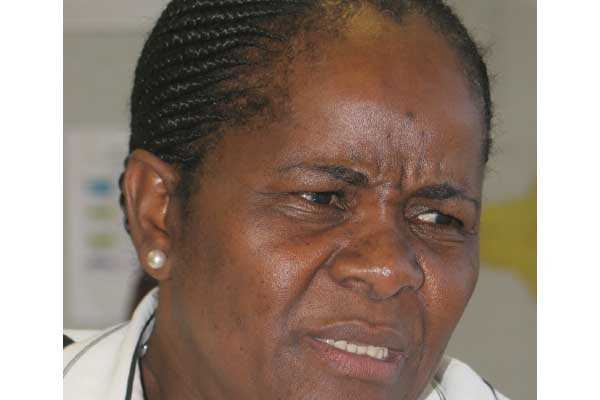Venson-Moitoi should up her AU campaign or quit
The epitome of patriotism is truth, unshakable truth. As such, it would be very unpatriotic of me to say anything other than the truth concerning Pelonomi Veson-Moitoi’s campaign for the AU Commission Chairpersonship. With her campaign being as lacklustre as it is, surely Venson-Moitoi is provoking a humiliating defeat and a national embarrassment.
With AU Summit just around the corner, Venson-Moitoi must up her tempo or resign to the fact that she is running a losing battle. That does not mean I do not support her campaign, as a Motswana I am duty bound. But I am making an observation on an issue that is already raising concern not only in the SADC bloc but also continentally. There is already a growing concern from prominent persons and influential non-state actors in the continent that the current aspirants for AU Commission Chair are “below par.” Names of the former Tanzanian President Jakaya Kikwete and current Algerian Foreign Minister Ramtane Lamamra have been mentioned in the frantic search for a ‘suitable’ person to replace Dlamini-Zuma who is due to end her term in a few weeks, having declined to run for a second term. This unfolding scenario has also seen voices from various quarters of the continent calling for postponement in the selection to next January Summit so that there can be an open and consultative selection process and the vibrant public debate that will go with it.
The argument is that, the five spelled out AU criteria for choosing the candidate, which are education; experience; leadership; achievement; and vision and strategy should only serve as a starting point. They argue that Africa should not be content with a person who simply meets the standards, but should demand the very person for the job and so far Dlamini-Zuma has set the bar high. The fact is, the selection of the AU Commission Chair a huge decision that could shape the fate of the organisation and the whole African continent for years to come. It is even more important given that the AU is more than just an inter-governmental organisation.
It is representation of the common demands of ordinary people across the continent for unity, dignity and emancipation. Who its chairperson is matters. Besides, it is a truly demanding job. It demands visionary leadership, political credibility and acumen, and managerial skills. It is not a job for a political crony, but someone who can truly reach out and inspire the African people. The person who will lead the AU Commission and guide the continent for the next four years, or possibly even eight. They will be in charge of realising Africa’s Agenda 2063 and implementing all current programmes, including overseeing the African peace and security architecture, the African governance architecture, and ensuring the AU is adequately financed. It’s a hugely important post and Africans should care who fills it.
Although SADC is arguing that Venson-Moitoi should continue the incumbency because the current Chair, Dlamini-Zuma will not be serving a second term, it is becoming apparent that other countries are uncomfortable because of Botswana’s firm support for the International Criminal Court, which the AU has rejected as biased towards Africa. However, there is already a counter-argument to this rotation thesis arguing that it focuses more on where the candidate is from rather than what the candidate is offering to the continent. They argue further that strictly adhering to the rotational-format could easily become a conduit for cronyism.
It is in this context that Venson-Moitoi should not only rely her campaign on the rotation-thesis, but also prove herself to the continent to be the best candidate to tackle the continent’s most serious challenges, such as negotiating peace agreements, dispatching peacekeepers, advancing regional integration, and promoting the principles of democratic constitutionalism. Key to her success is for Botswana and SADC, especially South Africa to launch an aggressive diplomatic campaign to ensure she gets the job. Surely Botswana will have to ride on South Africa’s regional and continental status to lobby. However, the paradox is that on the ICC issue, Botswana and South Africa are surely poles apart.





